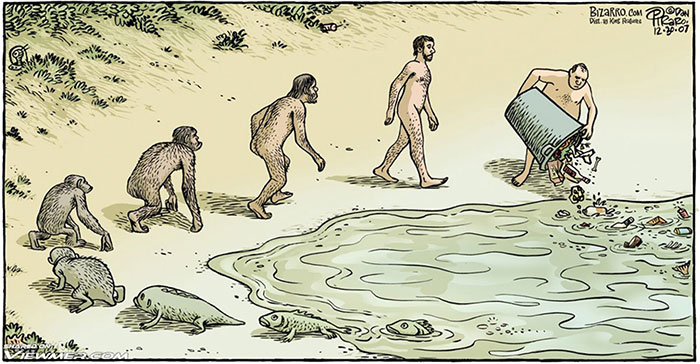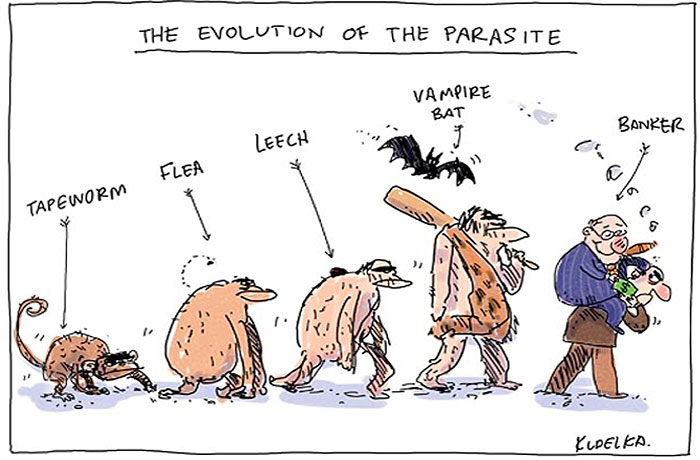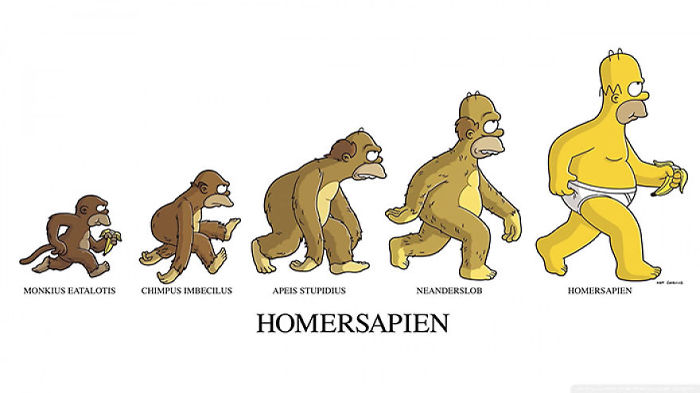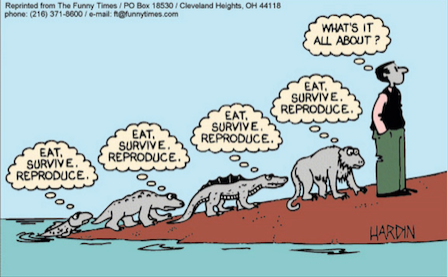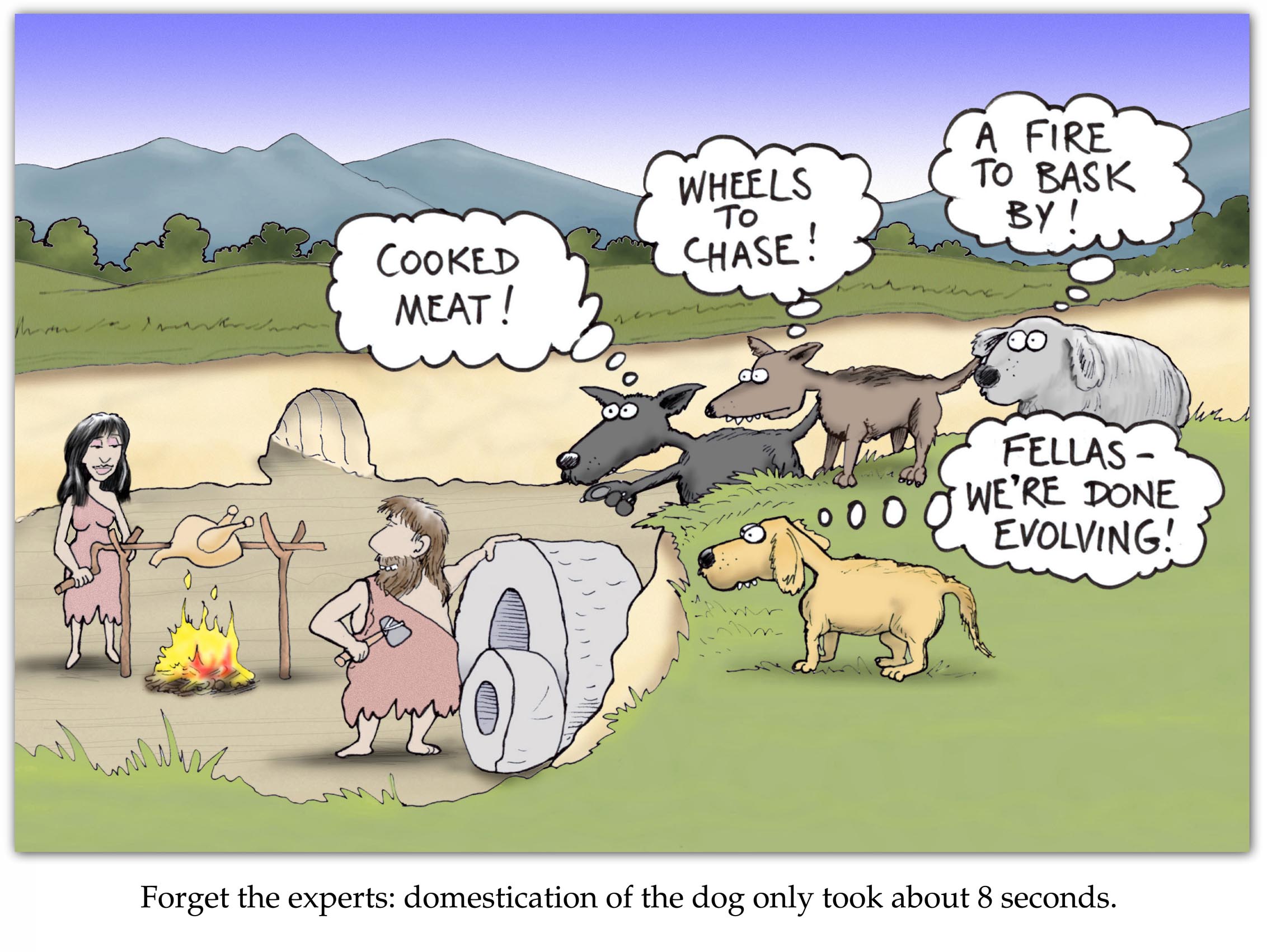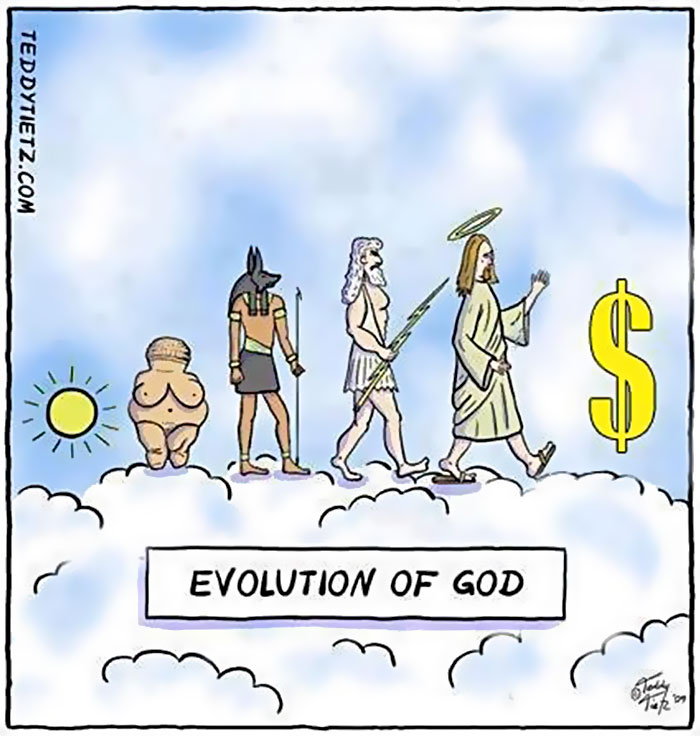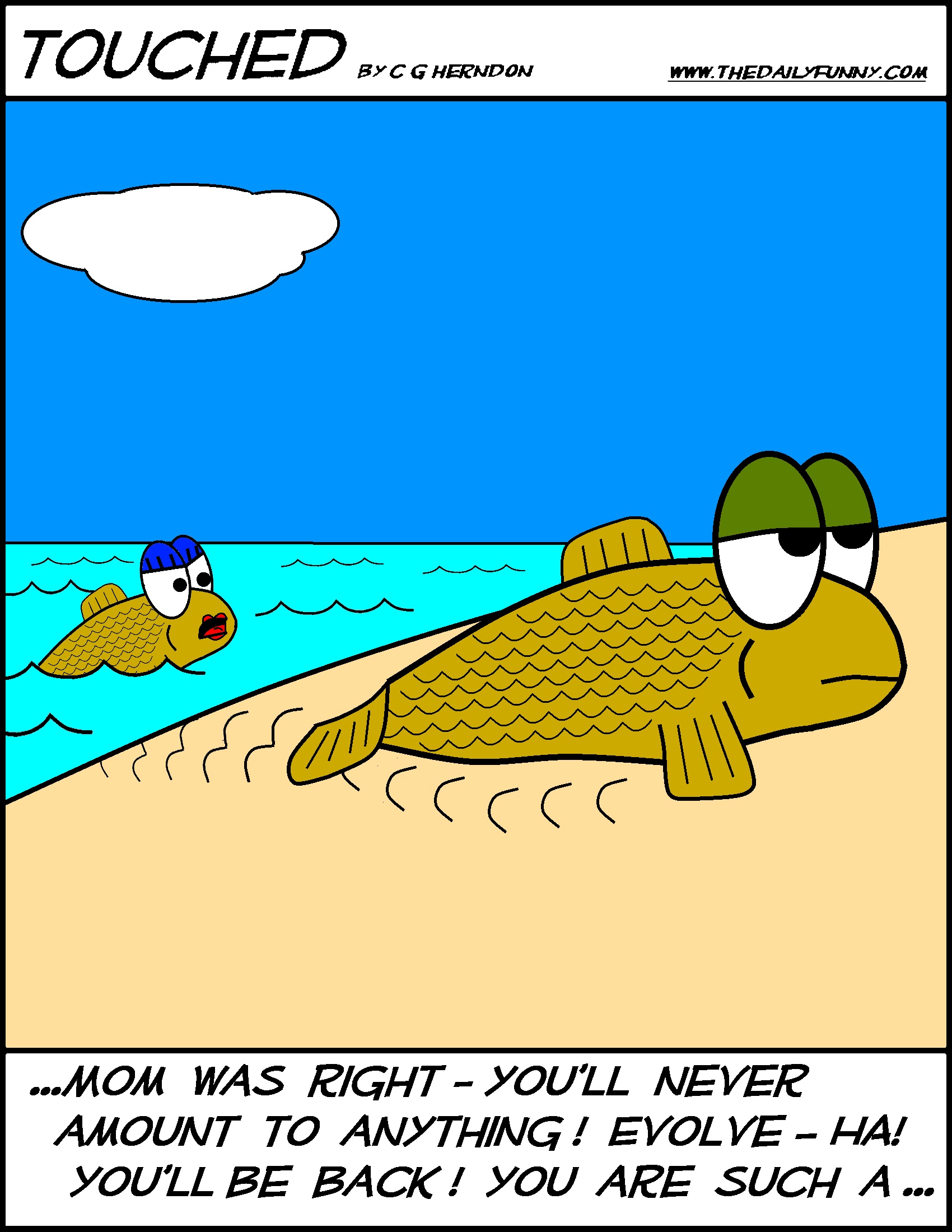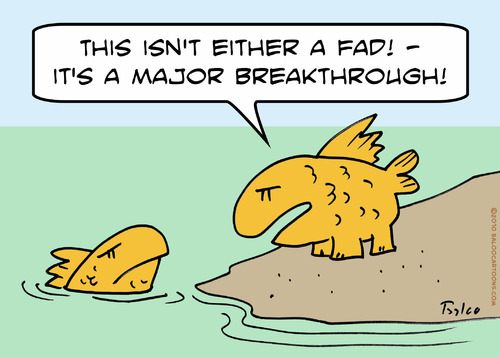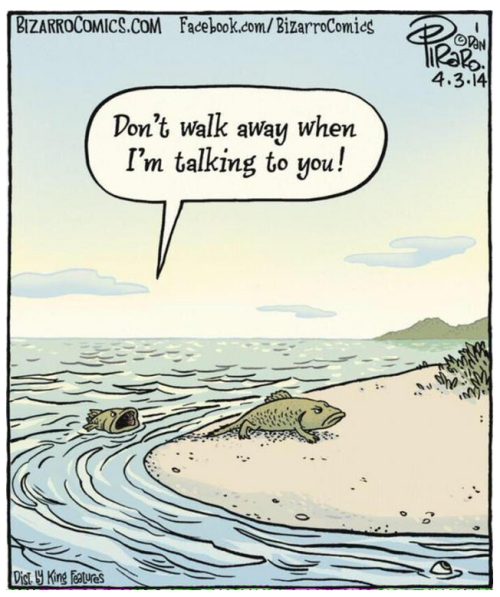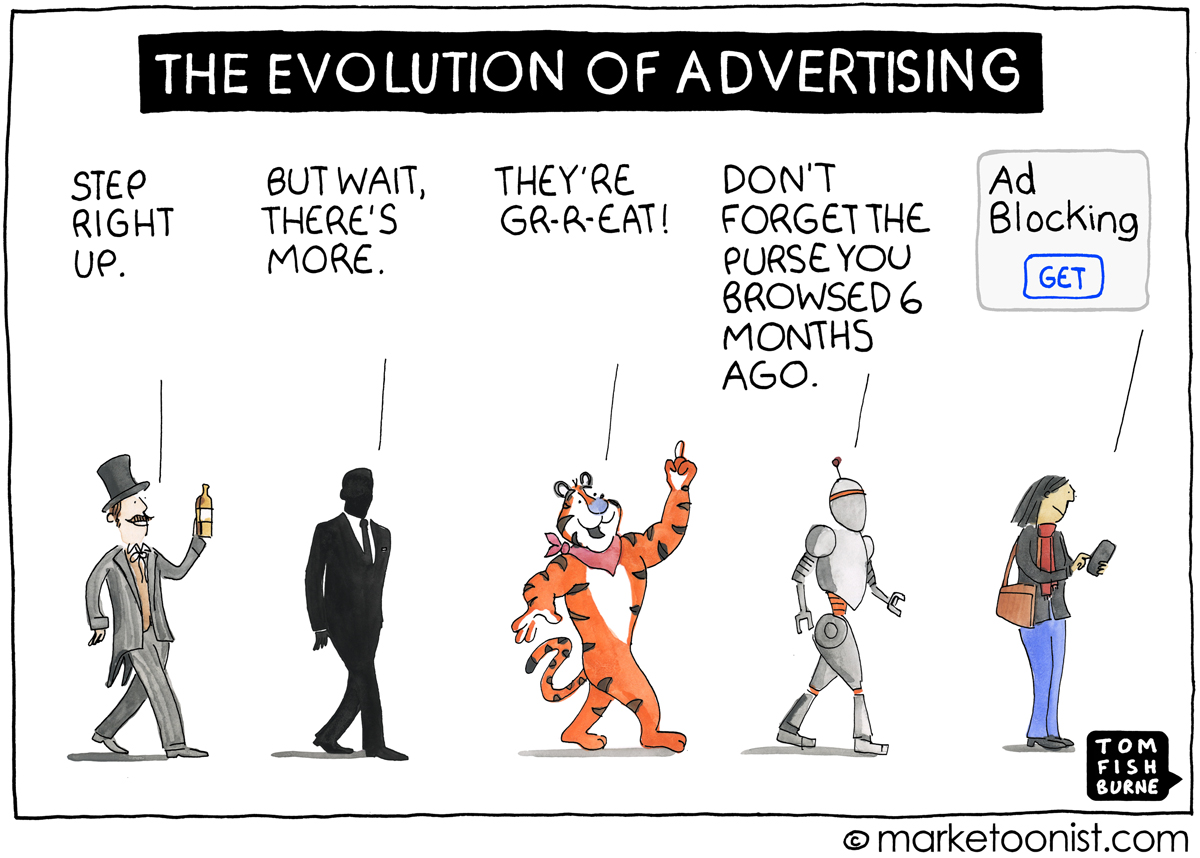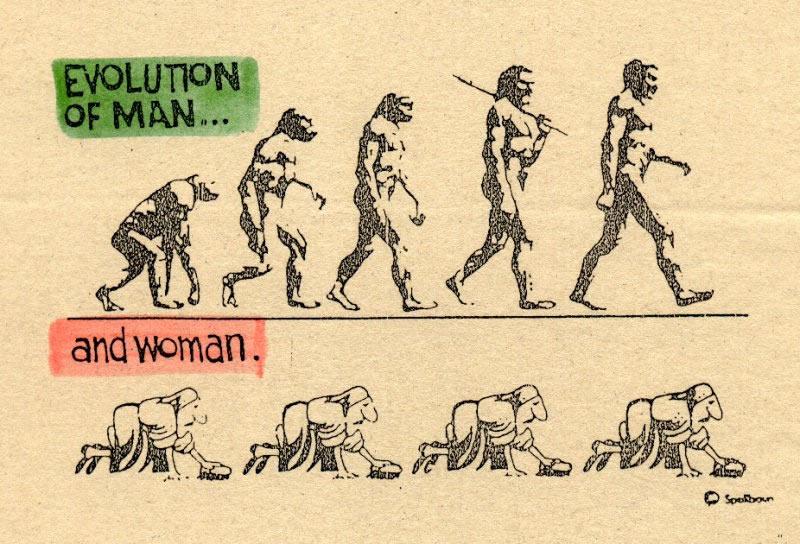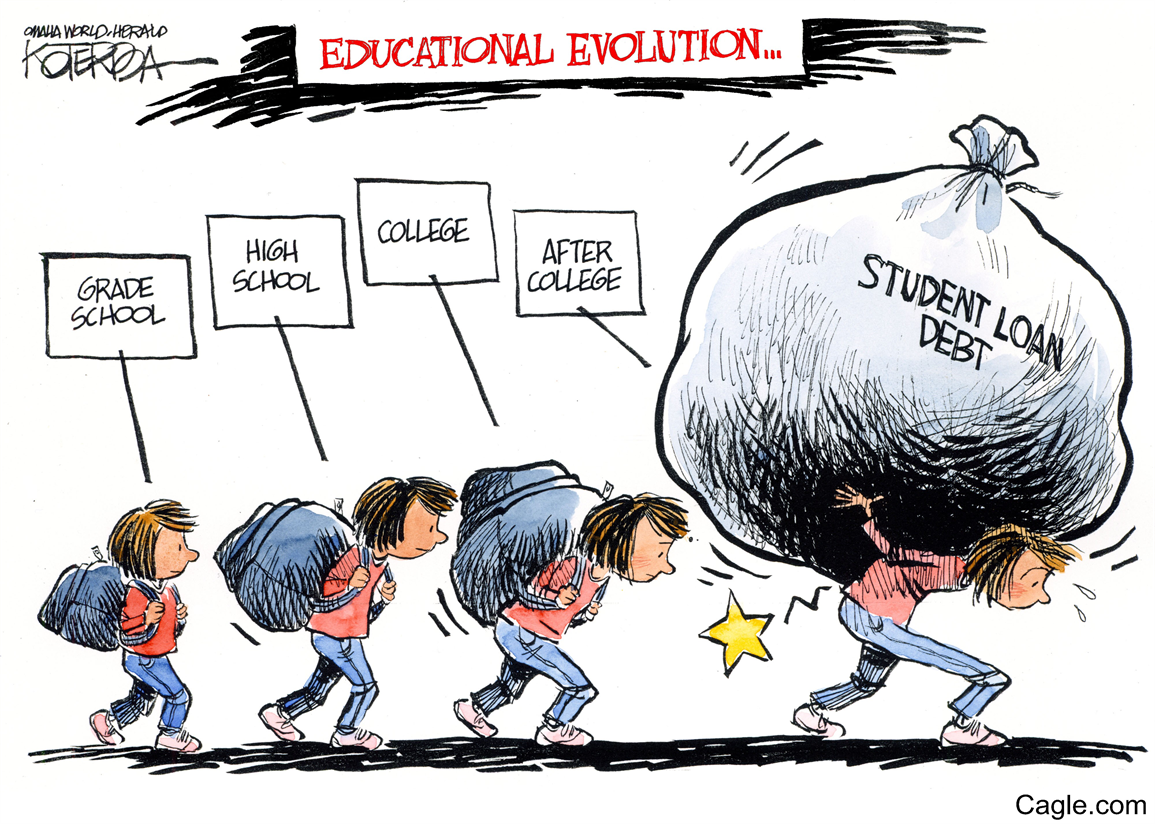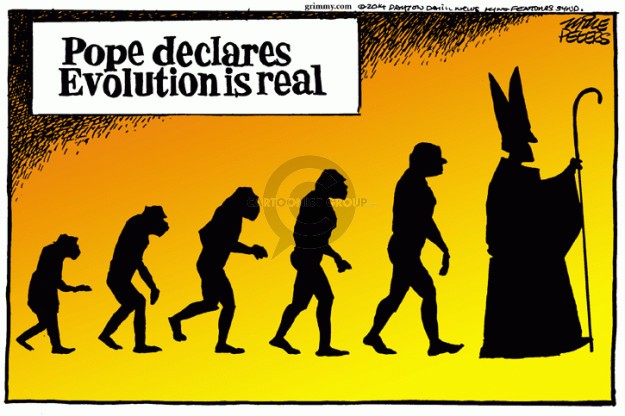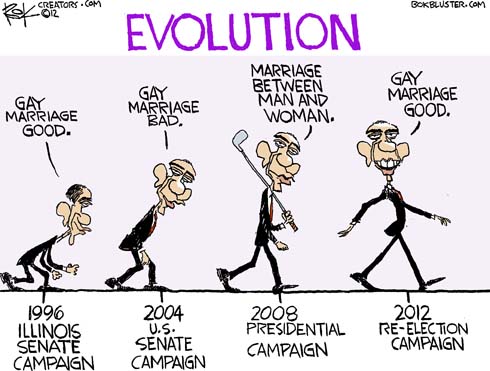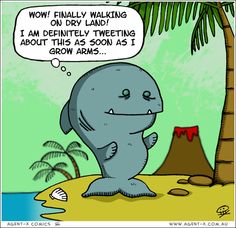|
home | what's new | other sites | contact | about |
|||
|
Word Gems self-knowledge, authentic living, full humanity, continual awakening
Evolution
Charles Darwin, The Origin of Species: “Thus, from the war of nature, from famine and death, the most exalted object which we are capable of conceiving, namely, the production of the higher animals, directly follows. There is grandeur in this view of life, with its several powers, having been originally breathed into a few forms or into one; and that, whilst this planet has gone cycling on according to the fixed law of gravity, from so simple a beginning endless forms most beautiful and most wonderful have been, and are being, evolved.” Rupert Sheldrake: "Like the legendary Procrustes, who placed his victims on an iron bed, cutting them down to size if they were longer than the bed and, if shorter, stretching them, Charles Darwin tried to fit the evolution of life onto the Procrustean bed of the deterministic, mechanistic universe then prevalent in nineteenth-century physics. His twentieth-century followers still tried to force the evolution of life into an eternal mechanical universe. The “modern synthesis” that laid the foundations of the neo-Darwinian theory of evolution took place in the 1930s and 1940s, long before evolutionary cosmology became orthodox. It was an attempt to create a mechanistic theory of biological evolution consistent with the non-evolutionary physical sciences. All evolutionary phenomena were to be explained, in principle, in terms of the eternal laws of physics and chemistry. Random genetic mutations were supposed to be the ultimate source of all evolutionary novelty, allowing nature a kind of mindless creativity consistent with a blind, purposeless, unconscious universe."
Brian Goodwin, biologist, How The Leopard Got Its Spots: The Evolution of Complexity: “I don’t think biology at the moment is a science at all, at least in the sense that physics and chemistry are sciences. We need to know the universal ordering principles just as Newton provided them for the inanimate world.”
Upton Sinclair, I, Candidate for Governor: “It is difficult to get a man to understand something when his salary depends on his not understanding it.” Dr. Amit Goswami, Creative Evolution: “Every biologist must be painfully aware that biology is an incomplete science. It needs new organizing principles, ones that are nonphysical and nonmaterial, to explain three perennial mysteries: (1) the difference between life and nonlife (Davies 1988), (2) the development of an embryo into an adult biological form (Sheldrake 1981), and (3) … Eldridge and Gould (1972), the discontinuous epochs of evolution. Unfortunately, it is not politically correct for a biologist to admit these shortcomings in public.” G.K. Chesterton: “It is absurd for the Evolutionist to complain that it is unthinkable for an admittedly unthinkable God to make everything out of nothing, and then pretend that it is more thinkable that nothing should turn itself into everything.” Sigmund Freud, Moses and Monotheism: “Religion is an attempt to get control over the sensory world, in which we are placed, by means of the wish-world, which we have developed inside us as a result of biological and psychological necessities. But it cannot achieve its end. Its doctrines carry with them the stamp of the times in which they originated, the ignorant childhood days of the human race. Its consolations deserve no trust. Experience teaches us that the world is not a nursery. The ethical commands, to which religion seeks to lend its weight, require some other foundations instead, for human society cannot do without them, and it is dangerous to link up obedience to them with religious belief. If one attempts to assign to religion its place in man’s evolution, it seems not so much to be a lasting acquisition, as a parallel to the neurosis which the civilized individual must pass through on his way from childhood to maturity.”
Neil deGrasse Tyson: “People cited violation of the First Amendment when a New Jersey schoolteacher asserted that evolution and the Big Bang are not scientific and that Noah's ark carried dinosaurs. This case is not about the need to separate church and state; it's about the need to separate ignorant, scientifically illiterate people from the ranks of teachers.” Mark Twain: “What is Man? Man is a noisome bacillus whom Our Heavenly Father created because he was disappointed in the monkey.”
Richard Dawkins, River Out of Eden: A Darwinian View of Life: “The total amount of suffering per year in the natural world is beyond all decent contemplation. During the minute that it takes me to compose this sentence, thousands of animals are being eaten alive, many others are running for their lives, whimpering with fear, others are slowly being devoured from within by rasping parasites, thousands of all kinds are dying of starvation, thirst, and disease. It must be so. If there ever is a time of plenty, this very fact will automatically lead to an increase in the population until the natural state of starvation and misery is restored. In a universe of electrons and selfish genes, blind physical forces and genetic replication, some people are going to get hurt, other people are going to get lucky, and you won't find any rhyme or reason in it, nor any justice. The universe that we observe has precisely the properties we should expect if there is, at bottom, no design, no purpose, no evil, no good, nothing but pitiless indifference.” George Bernard Shaw: “My religious convictions and scientific views cannot at present be more specifically defined than as those of a believer in creative evolution. I desire that no public monument or work of art or inscription or sermon or ritual service commemorating me shall suggest that I accepted the tenets peculiar to any established church or denomination nor take the form of a cross or any other instrument of torture or symbol of blood sacrifice.” Christopher Hitchens: [Said during a debate when his opponent asserted that atheism and belief in evolution lead to Nazism] “Atheism by itself is, of course, not a moral position or a political one of any kind; it simply is the refusal to believe in a supernatural dimension. For you to say of Nazism that it was the implementation of the work of Charles Darwin is a filthy slander, undeserving of you and an insult to this audience. Darwin’s thought was not taught in Germany; Darwinism was so derided in Germany along with every other form of unbelief that all the great modern atheists, Darwin, Einstein and Freud were alike despised by the National Socialist regime. Now, just to take the most notorious of the 20th century totalitarianisms – the most finished example, the most perfected one, the most ruthless and refined one: that of National Socialism, the one that fortunately allowed the escape of all these great atheists, thinkers and many others, to the United States, a country of separation of church and state, that gave them welcome – if it’s an atheistic regime, then how come that in the first chapter of Mein Kampf, that Hitler says that he’s doing God’s work and executing God’s will in destroying the Jewish people? How come the fuhrer-oath that every officer of the Party and the Army had to take, making Hitler into a minor god, begins, “I swear in the name of almighty God, my loyalty to the Fuhrer?” How come that on the belt buckle of every Nazi soldier it says Gott mit uns, God on our side? How come that the first treaty made by the Nationalist Socialist dictatorship, the very first is with the Vatican? It’s exchanging political control of Germany for Catholic control of German education. How come that the church has celebrated the birthday of the Fuhrer every year, on that day until democracy put an end to this filthy, quasi-religious, superstitious, barbarous, reactionary system? Again, this is not a difference of emphasis between us. To suggest that there’s something fascistic about me and about my beliefs is something I won't hear said and you shouldn't believe.” Dr. Amit Goswami, Creative Evolution: “[Scientific materialism asserts:] Elementary particles make atoms, atoms make molecules, molecules make living cells with those all-powerful genes, some of the living cells (guided by the genes) make the brain, and the brain makes all subjective experiences, such as consciousness, thoughts, feelings, and so on. Cause rises upward from the elementary particles, and all causation is upward causation… Can you really believe that all your thoughts and meanings, your feelings and struggles with values, and indeed your consciousness itself, are the results of a random dance of elementary particles of genetic determinism? That you are a purely ornamental epiphenomenon, a secondary consequence of the random movement of matter in your brain cells? Even the scientific proponents of purely upward causation don’t really believe that! If they themselves are merely causally impotent epiphenomena, why do they take themselves and their ideas so seriously?”
Bill Hicks: “Folks, it's time to evolve. That's why we're troubled. You know why our institutions are failing us, the church, the state, everything's failing? It's because, um – they're no longer relevant. We're supposed to keep evolving. Evolution did not end with us growing opposable thumbs.” Oliver Wendell Holmes Sr.: “Every now and then a man's mind is stretched by a new idea or sensation, and never shrinks back to its former dimensions.” Carl Sagan, The Varieties of Scientific Experience: A Personal View of the Search for God: “Extinction is the rule. Survival is the exception.” Milton Berle:“If evolution really works, how come mothers only have two hands?” Richard Dawkins, The Greatest Show on Earth: The Evidence for Evolution: “Evolution could so easily be disproved if just a single fossil turned up in the wrong date order. Evolution has passed this test with flying colors.” Garth Stein, The Art of Racing in the Rain: “I don't understand why people insist on pitting concepts of evolution and creation against each other. Why can't they see that spiritualism and science are one? That bodies evolve and souls evolve and the universe is a fluid package that marries them both in a wonderful package called a human being. What's wrong with that idea?” Stephen King, Cell: “At bottom, you see, we are not Homo sapiens as all. Our core is madness. The prime directive is murder. What Darwin was too polite to say, my friends, is that we came to rule the earth not because we were the smartest, or even the meanest, but because we have always been the craziest, most murderous ***** in the jungle.” Albert Einstein, On Cosmic Religion and Other Opinions and Aphorisms: “I believe in intuition and inspiration. Imagination is more important than knowledge. For knowledge is limited, whereas imagination embraces the entire world, stimulating progress, giving birth to evolution. It is, strictly speaking, a real factor in scientific research.” Richard Dawkins: “It is absolutely safe to say that if you meet somebody who claims not to believe in evolution, that person is ignorant, stupid or insane (or wicked, but I'd rather not consider that).”
Charles Darwin, The Life & Letters of Charles Darwin: “I own that I cannot see as plainly as others do, and as I should wish to do, evidence of design and beneficence on all sides of us. There seems to me too much misery in the world. I cannot persuade myself that a beneficent and omnipotent God would have designedly created the Ichneumonidæ with the express intention of their feeding within the living bodies of Caterpillars, or that a cat should play with mice... I feel most deeply that the whole subject is too profound for the human intellect. A dog might as well speculate on the mind of Newton. Let each man hope and believe what he can.” Dr. Amit Goswami, Creative Evolution: “Animal and human behavior clearly show that real intelligence with causal efficacy exists in living organisms… Witness all the creative work by the many scientists of the twentieth century alone that has causally ‘disturbed the universe.’ Think of the discoveries in relativity and nuclear physics… that work cannot be dismissed as an example of genetic determinism… Furthermore, depending on the idea of adaptive advantage for the emergence of all things unexplained by biology – among them feeling, meaning and purpose, and indeed consciousness itself – is no less foolhardy than the religionists’ attempt to account for everything inexplicable as acts of God. Matter just isn’t up to the task of handling those things: Scientists and philosophers have been able to argue quite convincingly that matter cannot process meaning (Penrose 1989; Searle 1994) or produce consciousness (Chalmers 1995)… If matter cannot process meaning or organize consciousness, how then can matter produce meaning and consciousness as adaptive epiphenomena from which nature may select?” John Burroughs, The Light of Day (Volume 11); Religious Discussions and Criticisms from the Naturalist's Point of View: “The universe is so inhuman, that is, it goes its way with so little thought of man. He is but an incident, not an end. We must adjust our notions to the discovery that things are not shaped to him, but that he is shaped to them. The air was not made for his lungs, but he has lungs because there is air; the light was not created for his eye, but he has eyes because there is light. All the forces of nature are going their own way; man avails himself of them, or catches a ride as best he can. If he keeps his seat, he prospers; if he misses his hold and falls, he is crushed.” Daniel Quinn, Ishmael: An Adventure of the Mind and Spirit: “Do you see the slightest evidence anywhere in the universe that creation came to an end with the birth of man? Do you see the slightest evidence anywhere out there that man was the climax toward which creation had been straining from the beginning? ...Very far from it. The universe went on as before, the planet went on as before. Man's appearance caused no more stir than the appearance of jellyfish.” Richard Dawkins, The Greatest Show on Earth: The Evidence for Evolution: “Even if it were true that evolution, or the teaching of evolution, encouraged immorality that would not imply that the theory of evolution was false.” Charles Darwin, The Descent of Man: “The following proposition seems to me in a high degree probable—namely, that any animal whatever, endowed with well-marked social instincts, the parental and filial affections being here included, would inevitably acquire a moral sense or conscience, as soon as its intellectual powers had become as well, or nearly as well developed, as in man. For, firstly, the social instincts lead an animal to take pleasure in the society of its fellows, to feel a certain amount of sympathy with them, and to perform various services for them.”
Charles Darwin, The Origin of Species: “If it could be demonstrated that any complex organ existed, which could not possibly have been formed by numerous, successive, slight modifications, my theory would absolutely break down. But I can find no such case.” Robert Wright, The Moral Animal: Why We Are the Way We Are: The New Science of Evolutionary Psychology: “We are built to be effective animals, not happy ones.” Thomas Henry Huxley: “It was badly received by the generation to which it was first addressed, and the outpouring of angry nonsense to which it gave rise is sad to think upon. But the present generation will probably behave just as badly if another Darwin should arise, and inflict upon them that which the generality of mankind most hate—the necessity of revising their convictions... Let them as speedily perform a strategic right-about-face, and follow the truth wherever it leads.” Richard Dawkins, The Selfish Gene: “We are survival machines – robot vehicles blindly programmed to preserve the selfish molecules known as genes. This is a truth which still fills me with astonishment.” Bill Maher: “New Rule: Stop asking Miss USA contestants if they believe in evolution. It’s not their field. It’s like asking Stephen Hawking if he believes in hair scrunchies. Here’s what they know about: spray tans, fake boobs and baton twirling. Here’s what they don’t know about: everything else. If I cared about the uninformed opinions of some ditsy beauty queen, I’d join the Tea Party.” Sam Harris, The End of Faith: Religion, Terror, and the Future of Reason: “It is also worth noting that one can obtain a Ph.D. in any branch of science for no other purpose than to make cynical use of scientific language in an effort to rationalize the glaring inadequacies of tbe Bible. A handful of Christians appear to have done this; some have even obtained their degrees from reputable universities. No doubt, others will follow in their footsteps. While such people are technically "scientists," they are not behaving like scientists. They simply are not engaged in an honest inquiry into the nature of the universe. And their proclamations about God and the failures of Darwinism do not in the least signify that there is a legitimate scientific controversy about evolution.” Dr. Amit Goswami, Creative Evolution: “Can geographical isolation explain the fossil gaps in all cases of speciation [the change of one species into another]? No, it cannot. It certainly is a viable explanation of speciation for what we call microevolution, the evolution of simple organisms involving only a few genetic changes. However, it cannot explain macroevolution, or evolution of new species involving a large number of genetic changes. The reason is subtle… Probability calculations alone preclude Darwinism’s ability to explain all evolution, whether micro or macro. I have cited biologist Robert Shapiro’s (1986) work… Shapiro showed that the maximum number of chance events available over a billion years of evolution is 2.5 x 1051. The astrophysicist Arne Wyller (2003), on the basis of very conservative assumptions, deduced that to create the billion multicellular species that have ever existed on Earth until now (according to Harvard biologist Richard Lewontin) requires more than 101000000000000 chance events. This figure is obviously far, far, far greater than the number of chance events available as calculated by Shapiro… Mere chance and necessity cannot do it all. Biologists must face up to this.” Loren Eiseley, The Immense Journey: “Out of the choked Devonian waters emerged sight and sound and the music that rolls invisible through the composer's brain. They are there still in the ooze along the tideline, though no one notices. The world is fixed, we say: fish in the sea, birds in the air. But in the mangrove swamps by the Niger, fish climb trees and ogle uneasy naturalists who try unsuccessfully to chase them back to the water. There are things still coming ashore.”
William A. Dembski: “Johnson is a radical skeptic, insisting, in the best Socratic tradition, that everything be put on the table for examination. By contrast, most skeptics opposed to him are selective skeptics, applying their skepticism to the things they dislike (notably religion) and refusing to apply their skepticism to the things they do like (notably Darwinism). On two occasions I’ve urged Michael Shermer, publisher of Skeptic Magazine, to put me on its editorial board as the resident skeptic of Darwinism. Though Shermer and I know each other and are quite friendly, he never got back to me about joining his editorial board.” Michael Denton, Evolution: A Theory In Crisis: “Considering the way the prebiotic soup is referred to in so many discussions of the origin of life as an already established reality, it comes as something of a shock to realize that there is absolutely no positive evidence for its existence.” Paul Davies, The Fifth Miracle: The Search for the Origin and Meaning of Life: “Many investigators feel uneasy stating in public that the origin of life is a mystery, even though behind closed doors they admit they are baffled.” Herman Melville, Moby-Dick: “There is no steady unretracing progress in this life; we do not advance through fixed gradations, and at the last one pause: through infancy's unconscious spell, boyhood's thoughtless faith, adolescence' doubt (the common doom), and then scepticism, then disbelief, resting at last in manhood's pondering repose of If.” Christopher Hitchens: “What struck me, in reading the reports from Sri Lanka, was the mild disgrace of belonging to our imperfectly evolved species in the first place. People who had just seen their neighbors swept away would tell the reporters that they knew a judgment had been coming, because the Christians had used alcohol and meat at Christmas or because ... well, yet again you can fill in the blanks for yourself. It was interesting, though, to notice that the Buddhists were often the worst. Contentedly patting an image of the chubby lord on her fencepost, a woman told the New York Times that those who were not similarly protected had been erased, while her house was still standing. There were enough such comments, almost identically phrased, to make it seem certain that the Buddhist authorities had been promulgating this consoling and insane and nasty view. That would not surprise me.” David K. DeWolf, Traipsing Into Evolution: Intelligent Design and the Kitzmiller v. Dover Decision: “Teachers seeking to 'teach the controversy' over Darwinian evolution in today's climate will likely be met with false warnings that it is unconstitutional to say anything negative about Darwinian evolution. Students who attempt to raise questions about Darwinism, or who try to elicit from the teacher an honest answer about the status of intelligent design theory will trigger administrators' concerns about whether they stand in Constitutional jeopardy. A chilling effect on open inquiry is being felt in several states already, including Ohio. South Carolina, and Pennsylvania. [District Court] Judge Jones's message is clear: give Darwin only praise, or else face the wrath of the judiciary.” Yuval Noah Harari, Sapiens: A Brief History of Humankind: “We have advanced from canoes to galleys to steamships to space shuttles - but nobody knows where we’re going. We are more powerful than ever before, but have very little idea what to do with all that power. Worse still, humans seem to be more irresponsible than ever. Self-made gods with only the laws of physics to keep us company, we are accountable to no one. We are consequently wreaking havoc on our fellow animals and on the surrounding ecosystem, seeking little more than our own concord and amusement, yet never-ending satisfaction. Is there anymore more dangerous than dissatisfied and irresponsible gods who don’t know what they want?” Clarence Darrow: “We are marching backwards to the glorious age of the sixteenth century when bigots lighted fagots to burn men who dared to bring any intelligence and enlightenment and culture to the human mind.” Deepak Chopra: "The next step in mans evolution will be the survival of the wisest.” Suzy Kassem, Rise Up and Salute the Sun: “To really change the world, we have to help people change the way they see things. Global betterment is a mental process, not one that requires huge sums of money or a high level of authority. Change has to be psychological. So if you want to see real change, stay persistent in educating humanity on how similar we all are than different. Don't only strive to be the change you want to see in the world, but also help all those around you see the world through commonalities of the heart so that they would want to change with you. This is how humanity will evolve to become better. This is how you can change the world. The language of the heart is mankind's main common language.” Eoin Colfer, The Time Paradox: “The Theory of Evolution has more holes in it than a dam made out of Swiss cheese.”
H.L. Mencken, A Mencken Chrestomathy: “Nevertheless, it is even harder for the average ape to believe that he has descended from man.” Carl Sagan, Cosmos: “The fossil record implies trial and error, the inability to anticipate the future, features inconsistent with a Great Designer (though not a Designer of a more remote and indirect temperament.)” Michael Shermer, Why Darwin Matters: The Case Against Intelligent Design: “Accepting evolution does not force us to jettison our morals and ethics, and rejecting evolution does not ensure their constancy.” Charles Darwin, The Descent of Man: “For my own part I would as soon be descended from that heroic little monkey, who braved his dreaded enemy in order to save the life of his keeper; or from that old baboon, who, descending from the mountains, carried away in triumph his young comrade from a crowd of astonished dogs—as from a savage who delights to torture his enemies, offers up bloody sacrifices, practices infanticide without remorse, treats his wives like slaves, knows no decency, and is haunted by the grossest superstitions.” Eckhart Tolle, A New Earth: Awakening to Your Life's Purpose: “When faced with a radical crisis, when the old way of being in the world, of interacting with each other and with the realm of nature doesn't work anymore, when survival is threatened by seemingly insurmountable problems, an individual life-form -- or a species -- will either die or become extinct or rise above the limitations of its condition through an evolutionary leap.” Robert G. Ingersoll, Lectures of Col. R.G. Ingersoll: Including His Letters on the Chinese God--Is Suicide a Sin?--The Right to One's Life--Etc. Etc. Etc, Volume 2: “This century will be called Darwin's century. He was one of the greatest men who ever touched this globe. He has explained more of the phenomena of life than all of the religious teachers. Write the name of Charles Darwin on the one hand and the name of every theologian who ever lived on the other, and from that name has come more light to the world than from all of those. His doctrine of evolution, his doctrine of the survival of the fittest, his doctrine of the origin of species, has removed in every thinking mind the last vestige of orthodox Christianity. He has not only stated, but he has demonstrated, that the inspired writer knew nothing of this world, nothing of the origin of man, nothing of geology, nothing of astronomy, nothing of nature; that the Bible is a book written by ignorance--at the instigation of fear. Think of the men who replied to him. Only a few years ago there was no person too ignorant to successfully answer Charles Darwin, and the more ignorant he was the more cheerfully he undertook the task. He was held up to the ridicule, the scorn and contempt of the Christian world, and yet when he died, England was proud to put his dust with that of her noblest and her grandest. Charles Darwin conquered the intellectual world, and his doctrines are now accepted facts. His light has broken in on some of the clergy, and the greatest man who to-day occupies the pulpit of one of the orthodox churches, Henry Ward Beecher, is a believer in the theories of Charles Darwin--a man of more genius than all the clergy of that entire church put together... The church teaches that man was created perfect, and that for six thousand years he has degenerated. Darwin demonstrated the falsity of this dogma. He shows that man has for thousands of ages steadily advanced; that the Garden of Eden is an ignorant myth; that the doctrine of original sin has no foundation in fact; that the atonement is an absurdity; that the serpent did not tempt, and that man did not 'fall.' Charles Darwin destroyed the foundation of orthodox Christianity. There is nothing left but faith in what we know could not and did not happen. Religion and science are enemies. One is a superstition; the other is a fact. One rests upon the false, the other upon the true. One is the result of fear and faith, the other of investigation and reason.”
Thomas Henry Huxley: [Responding to the Bishop of Oxford, Samuel Wilberforce's question whether he traced his descent from an ape on his mother's or his father's side] “A man has no reason to be ashamed of having an ape for his grandfather. If there were an ancestor whom I should feel shame in recalling it would rather be a man—a man of restless and versatile intellect—who … plunges into scientific questions with which he has no real acquaintance, only to obscure them by an aimless rhetoric, and distract the attention of his hearers from the real point at issue by eloquent digressions and skilled appeals to religious prejudice.” Karen Armstrong, A Short History of Myth: “This was the scientific age, and people wanted to believe that their traditions were in line with the new era, but this was impossible if you thought that these myths should be understood literally. Hence the furor occasioned by The Origin of Species, published by Charles Darwin. The book was not intended as an attack on religion, but was a sober exploration of a scientific hypothesis. But because by this time people were reading the cosmogonies of Genesis as though they were factual, many Christians felt--and still feel--that the whole edifice of faith was in jeopardy. Creation stories had never been regarded as historically accurate; their purpose was therapeutic. But once you start reading Genesis as scientifically valid, you have bad science and bad religion.” Michael Crichton: “I want to pause here and talk about this notion of consensus, and the rise of what has been called consensus science. I regard consensus science as an extremely pernicious development that ought to be stopped cold in its tracks. Historically, the claim of consensus has been the first refuge of scoundrels; it is a way to avoid debate by claiming that the matter is already settled. Whenever you hear the consensus of scientists agrees on something or other, reach for your wallet, because you're being had. Let's be clear: the work of science has nothing whatever to do with consensus. Consensus is the business of politics. Science, on the contrary, requires only one investigator who happens to be right, which means that he or she has results that are verifiable by reference to the real world. In science consensus is irrelevant. What is relevant is reproducible results. The greatest scientists in history are great precisely because they broke with the consensus. There is no such thing as consensus science. If it's consensus, it isn't science. If it's science, it isn't consensus. Period… I would remind you to notice where the claim of consensus is invoked. Consensus is invoked only in situations where the science is not solid enough. Nobody says the consensus of scientists agrees that E=mc2. Nobody says the consensus is that the sun is 93 million miles away. It would never occur to anyone to speak that way.” Charles Darwin: “To suppose that the eye with all its inimitable contrivances for adjusting the focus to different distances, for admitting different amounts of light, and for the correction of spherical and chromatic aberration, could have been formed by natural selection, seems, I confess, absurd in the highest degree...The difficulty of believing that a perfect and complex eye could be formed by natural selection, though insuperable by our imagination, should not be considered subversive of the theory.”
Haruki Murakami: “That's evolution. Evolution's always hard. Hard and bleak. No such thing as happy evolution.” Charles Darwin, The Origin of Species: “But just in proportion as this process of extermination has acted on an enormous scale, so must the number of intermediate varieties, which have formerly existed, be truly enormous. Why then is not every geological formation and every stratum full of such intermediate links? Geology assuredly does not reveal any such finely graduated organic chain; and this, perhaps, is the most obvious and serious objection which can be urged against the theory. The explanation lies, as I believe, in the extreme imperfection of the geological record.” Robert Ardrey, African Genesis: “We were born of risen apes, not fallen angels, and the apes were armed killers besides. And so what shall we wonder at? Our murders and massacres and missiles, and our irreconcilable regiments?” G.R. Matthews: “I think the measure of advancement depends on where you are stood and from what distance you look. A thousand years ago, we farmed the fields, built towns and defended our land with swords and spears. It is little different now, save for the number of people we have to protect. We still kill with a sharp edge or point of metal, blood runs red still, sons ride off to war and parents grieve. If you look at the Empire in its whole, then it is peaceful. If you look closely, you will see the small wars, the bandits and rebellions. Look more closely still and you’ll see the petty crimes, the struggle to survive, the rich bleeding the poor… Everywhere you find men, you find conflict.” Robert Trivers, Social Evolution: “The offspring cannot rely on its parents for disinterested guidance… When the parent imposes an arbitrary system of reinforcement (punishment and reward) in order to manipulate the offspring to act against its own best interests, selection will favor offspring that resist such schedules of reinforcement.” Richard O. Prum, The Evolution of Beauty: How Darwin's Forgotten Theory of Mate Choice Shapes the Animal World - And Us: “Desire for beauty will endure and undermine the desire for truth.” Idries Shah, Learning How to Learn: Psychology and Spirituality in the Sufi Way: “Man (and woman) has an infinite capacity for self-development. Equally, he has an infinite capacity for self-destruction. A human being may be clinically alive and yet, despite all appearances, spiritually dead.” Daniel C. Dennett, Darwin's Dangerous Idea: Evolution and the Meanings of Life: “To put it bluntly but fairly, anyone today who doubts that the variety of life on this planet was produced by a process of evolution is simply ignorant—inexcusably ignorant, in a world where three out of four people have learned to read and write.” Richard Dawkins, The Greatest Show on Earth: The Evidence for Evolution: “Even if not a single fossil has ever been found, the evidence from surviving animals would still overwhelmingly force the conclusion that Darwin was right.” Michael Shermer: “...evolution is not a religious tenet, to which one swears allegiance or belief as a matter of faith. It is a factual reality of the empirical world. Just as one would not say 'I believe in gravity," one should not proclaim 'I believe in evolution.” Scott F. Gilbert: “Genetics might be adequate for explaining microevolution, but microevolutionary changes in gene frequency were not seen as able to turn a reptile into a mammal or to convert a fish into an amphibian. Microevolution looks at adaptations that concern the survival of the fittest, not the arrival of the fittest... The origin of species — Darwin’s problem — remains unsolved.” Kant: "It is praiseworthy to go through the great creation of organized natures with the aid of comparative anatomy, in order to see whether there may not be inn it something resembling a system, even in the principle of generation of such beings. For otherwise . . . we are obliged to give up in discouragement all pretension to natural insight in this field. The agreement of so many species of animals in a certain common plan which appears to underlie not only their skeletal structure but also the arrangement of their other parts—so that, upon the basis of an original outline of wonderful simplicity a great variety of species could be produced merely by the shortening of one member and the lengthening of another, the diminution of this part and the elaboration of that—all this gives our minds a ray, though a feeble ray, of hope that something may here really be done with the principle of the mechanism of nature—apart from which there can be no natural science as such. This similarity of forms—so great that, amidst all their diversity, they seem to have been produced according to a common original type—gives force to the surmise of an actual relationship between them, by virtue of their generation by one primal mother —through the gradual approximation of one animal species to another, from that in which the principle of purposiveness seems beet established, i. e., man, down to the polyp, and from this even to the mosses and lichens, and, finally, down to the lowest stage of nature known to us, namely, to crude matter; from which matter and its forces, according to mechanical laws, . . . the entire system of nature (which in organized beings is to us so incomprehensible that we feel constrained to think another principle for it) seems to descend." Editor's note: Kant speaks much like Darwin 75 years before The Origin Of Species. Henry Gee, In Search of Deep Time: “No fossil is buried with its birth certificate. That, and the scarcity of fossils, means that it is effectively impossible to link fossils into chains of cause and effect in any valid way... To take a line of fossils and claim that they represent a lineage is not a scientific hypothesis that can be tested, but an assertion that carries the same validity as a bedtime story—amusing, perhaps even instructive, but not scientific.” William A. Dembski, Uncommon Dissent: Intellectuals Who Find Darwinism Unconvincing: “Regardless of one's point of view, it's quite easy to see that Darwinism is not in the same league as the hard sciences. For instance, Darwinists will often compare their theory favorably to Einsteinian physics, claiming that Darwinism is just as well established as general relativity. Yet how many physicists, while arguing for the truth of Einsteinian physics, will claim that general relativity is as well established as Darwin’s theory? Zero.” Gareth J. Nelson: “The idea that one can go to the fossil record and expect to empirically recover an ancestor-descendant sequence, be it of species, genera, families, or whatever, has been, and continues to be, a pernicious illusion.” Jonas Salk: “When things get bad enough, then something happens to correct the course. And it's for that reason that I speak about evolution as an error-making and an error-correcting process.” J.B.S. Haldane: “I am quite sure that our views on evolution would be very different had biologists studied genetics and natural selection before and not after most of them were convinced that evolution had occurred.”
Isaac Newton, The Principia: Mathematical Principles of Natural Philosophy: “Blind metaphysical necessity, which is certainly the same always and every where, could produce no variety of things. All that diversity of natural things which we find suited to different times and places could arise from nothing but the ideas and will of a Being, necessarily existing.” Jared Diamond, Guns, Germs, and Steel: The Fates of Human Societies: “It's striking that Native Americans evolved no devastating epidemic diseases to give to Europeans in return for the many devastating epidemic diseases that Indians received from the Old World.” Jonathan Wells, The Politically Incorrect Guide to Darwinism and Intelligent Design: “Ewww... intelligent design people! They're just buck-toothed, Bible-pushing nincompoops with community-college degrees who're trying to sell a gussied-up creationism to a cretinous public! No need to address their concerns or respond to their arguments. They are Not Science. They are poopy-heads. There. I just saved you the trouble of reading 90 percent of the responses to the Intelligent Design position... This is how losers act just before they lose: arrogant, self-satisfied, too important to be bothered with substantive refutation, and disdainful of their own faults... The only remaining question is whether Darwinism will exit gracefully, or whether it will go down biting, screaming, censoring, and denouncing to the bitter end.” G.K. Chesterton: “All we know of the Missing Link is that he is missing - and he won't be missed either.” Robert J. Sawyer, Calculating God: “If theft is advantageous to everyone who succeeds at it, and adultery is a good strategy, at least for males, for increasing presence in the gene pool, why do we feel they are wrong? Shouldn't the only morality that evolution produces be the kind Bill Clinton had - being sorry you got caught?” Geoffrey Miller, The Mating Mind: How Sexual Choice Shaped the Evolution of Human Nature: “Scientific theories never dictate human values, but they can often cast new light on ethical issues. From a sexual selection viewpoint, moral philosophy and political theory have mostly been attempts to shift male human sexual competitiveness from physical violence to the peaceful accumulation of wealth and status. The rights to life, liberty, and property are cultural inventions that function, in part, to keep males from killing and stealing from one another while they compete to attract sexual partners.” James A. Shapiro: “For those scientists who take it seriously, Darwinian evolution has functioned more as a philosophical belief system than as a testable scientific hypothesis. This quasi-religious function of the theory is, I think, what lies behind many of the extreme statements that you have doubtless encountered from some scientists opposing any critical analysis of neo-Darwinism in the classroom. It is also why many scientists make public statements about the theory that they would not defend privately to other scientists like me.” Gareth J. Nelson: “The phrase 'the fossil record' sounds impressive and authoritative. As used by some persons it becomes, as intended, intimidating, taking on the aura of esoteric truth as expounded by an elite class of specialists. But what is it, really, this fossil record? Only data in search of interpretation. All claims to the contrary that I know, and I know of several, are so much superstition.” Vladimir L. Voeikov: “The ideology and philosophy of neo-Darwinism which is sold by its adepts as a scientific theoretical foundation of biology seriously hampers the development of science and hides from students the field’s real problems.” Deepak Chopra, The Book of Secrets: Unlocking the Hidden Dimensions of Your Life: “Two chemicals called actin and myosin evolved eons ago to allow the muscles in insect wings to contract and relax. Thus, insects learned to fly. When one of those paired molecules are absent, wings will grow but they cannot flap and are therefore useless. Today, the same two proteins are responsible for the beating of the human heart, and when one is absent, the person’s heartbeat is inefficient and weak, ultimately leading to heart failure. Again, science marvels at the way molecules adapt over millions of years, but isn’t there a deeper intent? In our hearts, we feel the impulse to fly, to break free of boundaries. Isn’t that the same impulse nature expressed when insects began to take flight? The prolactin that generates milk in a mother’s breast is unchanged from the prolactin that sends salmon upstream to breed, enabling them to cross from saltwater to fresh.” Charles Haddon Spurgeon: “I take leave to contradict those who say that salvation is an evolution! All that ever can be evolved out of the sinful heart of man is sin-and nothing else! Salvation is the free gift of God, by Jesus Christ, and the work of it is supernatural. It is done by the Lord Himself, and He has power to do it, however weak, no, however dead in sin, the sinner may be!”
David Berlinski: “Before you can ask 'Is Darwinian theory correct or not?', You have to ask the preliminary question 'Is it clear enough so that it could be correct?'. That's a very different question. One of my prevailing doctrines about Darwinian theory is 'Man, that thing is just a mess. It's like looking into a room full of smoke.' Nothing in the theory is precisely, clearly, carefully defined or delineated. It lacks all of the rigor one expects from mathematical physics, and mathematical physics lacks all the rigor one expects from mathematics. So we're talking about a gradual descent down the level of intelligibility until we reach evolutionary biology.” William A. Dembski: “Even if we have a reliable criterion for detecting design, and even if that criterion tells us that biological systems are designed, it seems that determining a biological system to be designed is akin to shrugging our shoulders and saying God did it. The fear is that admitting design as an explanation will stifle scientific inquiry, that scientists will stop investigating difficult problems because they have a sufficient explanation already. But design is not a science stopper. Indeed, design can foster inquiry where traditional evolutionary approaches obstruct it. Consider the term "junk DNA." Implicit in this term is the view that because the genome of an organism has been cobbled together through a long, undirected evolutionary process, the genome is a patchwork of which only limited portions are essential to the organism. Thus on an evolutionary view we expect a lot of useless DNA. If, on the other hand, organisms are designed, we expect DNA, as much as possible, to exhibit function. And indeed, the most recent findings suggest that designating DNA as "junk" merely cloaks our current lack of knowledge about function. For instance, in a recent issue of the Journal of Theoretical Biology, John Bodnar describes how "non-coding DNA in eukaryotic genomes encodes a language which programs organismal growth and development." Design encourages scientists to look for function where evolution discourages it. Or consider vestigial organs that later are found to have a function after all. Evolutionary biology texts often cite the human coccyx as a 'vestigial structure' that hearkens back to vertebrate ancestors with tails. Yet if one looks at a recent edition of Gray’s Anatomy, one finds that the coccyx is a crucial point of contact with muscles that attach to the pelvic floor. The phrase 'vestigial structure' often merely cloaks our current lack of knowledge about function. The human appendix, formerly thought to be vestigial, is now known to be a functioning component of the immune system.” Jacques Monod, Selected Papers in Molecular Biology: “A curious aspect of the theory of evolution is that everybody thinks he understands it.” Richard Dawkins, The Greatest Show on Earth: The Evidence for Evolution: “We think we know that chimpanzees are higher animals and earthworms are lower, we think we've always known what that means, and we think evolution makes it even clearer. But it doesn't. It is by no means clear that it means anything at all. Or if it means anything, it means so many different things to be misleading, even pernicious.” Michael Shermer, Why Darwin Matters: The Case Against Intelligent Design: “Evolution provides a scientific foundation for the core values shared by most Christians and conservatives, and by accepting–and embracing–the theory of evolution, Christians and conservatives strengthen their religion, their politics, and science itself. The conflict between science and religion is senseless. It is based on fears and misunderstandings rather than on facts and moral wisdom.” William A. Dembski: “Despite advertisements to the contrary, science is not a juggernaut that relentlessly pushes back the frontiers of knowledge. Rather, science is an interconnected web of theoretical and factual claims about the world that are constantly being revised and for which changes in one portion of the web can induce radical changes in another. In particular, science regularly confronts the problem of having to retract claims that it once confidently asserted.” Richard Dawkins, The Greatest Show on Earth: The Evidence for Evolution: “Despite the Great Chain of Being's traditional ranking of humans between animals and angels, there is no evolutionary justification for the common assumption that evolution is somehow 'aimed' at humans, or that humans are 'evolution's last word'.”
Jonathan Wells, The Politically Incorrect Guide to Darwinism and Intelligent Design: “The many meanings of 'evolution' are frequently exploited by Darwinists to distract their critics. Eugenie Scott recommends: 'Define evolution as an issue of the history of the planet: as the way we try to understand change through time. The present is different from the past. Evolution happened, there is no debate within science as to whether it happened, and so on... I have used this approach at the college level.' Of course, no college student—indeed, no grade-school dropout— doubts that 'the present is different from the past.' Once Scott gets them nodding in agreement, she gradually introduces them to 'The Big Idea' that all species—including monkeys and humans—are related through descent from a common ancestor... This tactic is called 'equivocation'—changing the meaning of a term in the middle of an argument.” Robert J. Sawyer, Calculating God: “That natural selection can produce changes within a type is disputed by no one, not even the staunchest creationist. But that it can transform one species into another — that, in fact, has never been observed.” Alan H. Linton: “Throughout 150 years of the science of bacteriology, there is no evidence that one species of bacteria has changed into another... Since there is no evidence for species changes between the simplest forms of unicellular life, it is not surprising that there is no evidence for evolution from prokaryotic [i.e., bacterial] to eukaryotic [i.e., plant and animal] cells, let alone throughout the whole array of higher multicellular organisms.” Jerry A. Coyne: “In science's pecking order, evolutionary biology lurks somewhere near the bottom, far closer to phrenology than to physics. For evolutionary biology is a historical science, laden with history's inevitable imponderables. We evolutionary biologists cannot generate a Cretaceous Park to observe exactly what killed the dinosaurs; and, unlike "harder" scientists, we usually cannot resolve issues with a simple experiment, such as adding tube A to tube B and noting the color of the mixture.” Andrew Vachss, Another Life: “You want proof evolution is for real, don’t waste your time with fossils; just check out the New York City rat. They started out as immigrants, stowaways in some ship’s cargo hold. Only the survivors got to breed, and they’ve been improving with every new litter. Smarter, faster, stronger. Getting ready to rule. Manhattan wouldn’t be the ?rst island they took over.” Philip S. Skell, Why Do We Invoke Darwin? Evolutionary Theory Contributes Little To Experimental Biology: “I recently asked more than seventy eminent researchers if they would have done I their work differently if they had thought Darwin's theory was wrong. The responses were all the same: no. I also examined the outstanding bio-discoveries of the past century: the discovery of the double helix; the characterization of the ribosome: the mapping of genomes; research on medications and drug reactions: improvements in food production and sanitation; the development of new surgeries; and others. I even queried biologists working in areas where one would expect the Darwinian paradigm to have most benefited research, such as the emergence of resistance to antibiotics and pesticides. Here, as elsewhere, I found that Darwin's theory had provided no discernible guidance, but was brought in, after the breakthroughs, as an interesting narrative gloss.” Raul O. Leguizamon: “I am absolutely convinced of the lack of true scientific evidence in favour of Darwinian dogma. Nobody in the biological sciences, medicine included, needs Darwinism at all. Darwinism is certainly needed, however, in order to pose as a philosopher, since it is primarily a worldview. And an awful one, as George Bernard Shaw used to say.” T.H. Janabi, Clinging to a Myth: The Story Behind Evolution: “All disciplines of science are built on the causality of the relationships governing related events. Yet the theory of evolution is built upon the idea of accidental changes that resulted in complex living systems. I was unable to comprehend how the notion that an infinite number of random accidents systematically happened to produce living species, and kept improving these beings, is justified.” Neil Shubin, Your Inner Fish: A Journey Into the 3.5-Billion-Year History of the Human Body: “We were not designed rationally, but are products of a convoluted history.” Steven M. Greer: “Alas, our technology has marched ahead of our spiritual and social evolution, making us, frankly, a dangerous people.”
M.., The Meaning(s) of Life: A Human's Guide to the Biology of Souls: “When you gaze out on a quiet, peaceful meadow, next to a still pond, under a motionless blue sky, you wonder how the noisy, busy cacophony of life could have arisen from such silent, motionless beginning.” Albert Einstein: “We shall require a substantially new manner of thinking if mankind is to survive.” Samuel Butler, Erewhon: “I remember one incident which bears upon this part of the treatise. The gentleman who gave it to me had asked to see my tobacco-pipe; he examined it carefully, and when he came to the little protuberance at the bottom of the bowl he seemed much delighted, and exclaimed that it must be rudimentary. I asked him what he meant. ‘Sir,’ he answered, ‘this organ is identical with the rim at the bottom of a cup; it is but another form of the same function. Its purposes must have been to keep the heat of the pipe from marking the table upon which it rested. You would find, if you were to look up the history of tobacco-pipes, that in early specimens this protuberance was of a different shape to what it is now. It will have been broad at the bottom, and flat, so that while the pipe was being smoked the bowl might rest upon the table without marking it. Use and disuse must have come into play and reduced the function its present rudimentary condition. I should not be surprised, sir,’ he continued, ‘if, in the course of time, it were to become modified still farther, and to assume the form of an ornamental leaf or scroll, or even a butterfly, while in some cases, it will become extinct.’” Paul Quarrington, The Boy on the Back of the Turtle: Seeking God, Quince Marmalade, and the Fabled Albatross on Darwin's Islands: “One reason might be that if I hadn't tripped, I'd have been hamburger. When this sort of thing occurs, people often say that there was some power greater than themselves at work. This sounds reasonable. I am just suggesting that it is not necessary to equate "greater than ourselves" with "stretched across the heavenly vault." It could mean "just slightly greater." A cocoon of energy that we carry with us, that is capable, under some conditions, of affecting physicality. Furthermore, I conjecture that the totality of all these souls is what constitutes the Godhead. I mean this in the same sense as the "Leviathan" of Thomas Hobbes, whereby man, that is everyone together, creates ‘that great Leviathan called a Commonwealth or State, which is but an artificial man, though of greater statute and strength than the natural, for whose protection and defense it was created.’ And that leads me to my Insight: God was not there at the beginning of evolution; God is what lies at the end of it.” Christopher Hitchens: “The sad thing is that so many people, in the belief that the universe is organized to suit and influence them, are willing to sacrifice even the slight cranial [critical-thinking] capacity with which evolution has equipped us.” Bryant McGill: “We must throw out the old, fear-based thought-forms and evolve, and begin to live as higher beings of compassion.” David Bajo: “Love, I have always known, is an evolutionary trait. It is a delicately tuned, intricate, sensitive impulse, but a trait nevertheless, a reaction honed by millions of years of an ever-changing and complex mating instinct.” George Gaylord Simpson, Tempo and Mode in Evolution: “The question ‘What is man?’ is probably the most profound that can be asked by man. It has always been central to any system of philosophy or theology…. The point I want to make now is that all attempts to answer that question before 1859 are worthless and that we will be better off if we ignore them completely.” G.K. Chesterton, The Everlasting Man: “Nobody can imagine how nothing could turn into something. Nobody can get an inch nearer to it by explaining how something could turn into something else. It is really far more logical to start by saying ‘In the beginning God created heaven and earth’ even if you only mean ‘In the beginning some unthinkable power began some unthinkable process.’ For God is by its nature a name of mystery, and nobody ever supposed that man could imagine how a world was created any more than he could create one. But evolution really is mistaken for explanation. It has the fatal quality of leaving on many minds the impression that they do understand it and everything else.”
Michael Denton, Evolution: A Theory In Crisis: “The theory of phlogiston was an inversion of the true nature of combustion. Removing phlogiston was in reality adding oxygen, while adding phlogiston was actually removing oxygen. The theory was a total misrepresentation of reality. Phlogiston did not even exist, and yet its existence was firmly believed and the theory adhered to rigidly for nearly one hundred years throughout the eighteenth century. ... As experimentation continued the properties of phlogiston became more bizarre and contradictory. But instead of questioning the existence of this mysterious substance it was made to serve more comprehensive purposes. ... For the skeptic or indeed to anyone prepared to step out of the circle of Darwinian belief, it is not hard to find inversions of common sense in modern evolutionary thought which are strikingly reminiscent of the mental gymnastics of the phlogiston chemists or the medieval astronomers. To the skeptic, the proposition that the genetic programmes of higher organisms, consisting of something close to a thousand million bits of information, equivalent to the sequence of letters in a small library of one thousand volumes, containing in encoded form countless thousands of intricate algorithms controlling, specifying and ordering the growth and development of billions and billions of cells into the form of a complex organism, were composed by a purely random process is simply an affront to reason. But to the Darwinist the idea is accepted without a ripple of doubt - the paradigm takes precedence!” Robert A. Heinlein, Stranger in a Strange Land: “The Universe was a damned silly place at best . . . but the least likely explanation for its existence was the no-explanation of random chance, the conceit that some abstract somethings 'just happened' to be some atoms that "just happened" to get together in configurations which "just happened" to look like consistent laws and then some of these configurations 'just happened' to possess self-awareness and that two such 'just happened' to be the Man from Mars and the other a bald-headed old coot with Jubal himself inside. No, Jubal would not buy the ‘just happened’ theory, popular as it was with men who called themselves scientists. Random chance was not a sufficient explanation of the Universe--in fact, random chance was not sufficient to explain random chance; the pot could not hold itself.” James P. Hogan: “A physicist that I know commented that many other scientific disciplines, such as geology, anthropology, astronomy, are also challenged by biblical fundamentalism, but their people seem to be able to get on with their work without worrying unduly. Only Darwinians seem thrown into a frenzy that sends them running to litigation and demanding censorship. His explanation was that it's a rival religion.” Steven E. Landsburg, The Big Questions: Tackling the Problems of Philosophy with Ideas from Mathematics, Economics and Physics: “...given sufficient ignorance, one can doubt evolution.” William A. Dembski: “Scientists rightly resist invoking the supernatural in scientific explanations for fear of committing a god-of-the-gaps fallacy (the fallacy of using God as a stop-gap for ignorance). Yet without some restriction on the use of chance, scientists are in danger of committing a logically equivalent fallacy-one we may call the “chance-of-the-gaps fallacy.” Chance, like God, can become a stop-gap for ignorance.” Carl Sagan: “In science it often happens that scientists say, 'You know that's a really good argument; my position is mistaken,' and then they would actually change their minds and you never hear that old view from them again. They really do it. It doesn't happen as often as it should, because scientists are human and change is sometimes painful. But it happens every day. I cannot recall the last time something like that happened in politics or religion.” Yuval Noah Harari, Homo Deus: A Brief History of Tomorrow: “The Theory of Relativity makes nobody angry because it doesn't contradict any of our cherished beliefs. Most people don't care an iota whether space and time are absolute or relative. If you think it is possible to bend space and time, well be my guest. ...In contrast, Darwin has deprived us of our souls. If you really understand the Theory of Evolution, you understand that there is no soul. This is a terrifying thought, not only to devote Christians and Muslims, but also to many secular people who don't hold any clear religious dogma, but nevertheless, want to believe that each human possess an eternal, individual essence that remains unchanged throughout life and can survive even death intact.” Carl Sagan, Dragons of Eden: Speculations on the Evolution of Human Intelligence: “Significant change might require those who are now high in the hierarchy to move downward many steps. This seems to them undesirable and is resisted.” Lao Tzu: “Highly evolved people have their own conscience as pure law.”
Craig D. Lounsbrough: “If we are merely a chance product of ‘random happenstance’ and nothing more, doesn’t it strike you as a bit odd that we have the ability to contemplate the question of ‘random happenstance’ with such methodical complexity?” Richard Dawkins: “The more statistically improbable a thing is, the less we can believe it just happened by blind chance...the obvious alternative to chance is an Intelligent Designer.” Terry Pratchett, The Last Continent: “Whoever had designed the skeletons of creatures had even less imagination than whoever had done the outsides. At least the outside-designer had tried a few novelties in the spots, wool and stripes department, but the bone-builder had generally just put a skull on a ribcage, shoved a pelvis in further along, stuck on some arms and legs and had the rest of the day off. Some ribcages were longer, some legs were shorter, some hands became wings, but they all seemed to be based on one design, one size stretched or shrunk to fit all.” Ronnie de Sousa: “We are the direct descendants of millions of freaks.” Thomas Hayden: “All sorts of changes in cellular machinery have shown up that have nothing to do with the sequence of DNA but still have profound, and heritable, impacts for generations to come. For example, malnourished rats give birth to undersized pups that, even if well fed, grow up to give birth to undersized pups. Which means, among other things, that poor old Lamarck was right—at least some acquired traits can be passed down.” Arno Penzias: “The world is most consistent with purposeful creation.” Robert Jastrow: “Far from disproving the existence of God, astronomers may be finding more circumstantial evidence that God exists.” Daniel C. Dennett, Darwin's Dangerous Idea: Evolution and the Meanings of Life: “The idea of treating Mind as an effect rather than as a First Cause is too revolutionary for some–an ‘awful stretcher’ that their own minds cannot accommodate comfortably. This is as true today as it was in 1860, and it has always been as true of some of evolution's best friends as of its foes. For instance, the physicist Paul Davies, in his recent book The Mind of God, proclaims that the reflective power of human minds can be ‘no trivial detail, no minor by-product of mindless purposeless forces.’ This is a most revealing way of expressing a familiar denial, for it betrays an ill-examined prejudice. Why, we might ask Davies, would its being a by-product of mindless, purposeless forces make it trivial? Why couldn't the most important thing of all be something that arose from unimportant things? Why should the importance or excellence of anything have to rain down on it from on high, from something more important, a gift from God? Darwin's inversion suggests that we abandon that presumption and look for sorts of excellence, of worth and purpose, that can emerge, bubbling up out of ‘mindless, purposeless forces.’” Kelly McGonigal, The Willpower Instinct: “Evolution doesn't give a damn about your happiness, but will use the promise of happiness (using dopamine rushes) to keep you hunting, gathering, working, and wooing.” Jack Cuozzo, Buried Alive: The Startling Truth about Neanderthal Man: “Recently, a professor at Penn State told my son Joshua's class that during a trip to Africa, he had a mysterious encounter with a witch doctor of a tribe. He watched with horror as this witch doctor put a man into a trance and made the man put his face into burning coals and move them around with his nose on the ground. The man received no burns and wasn't even aware of the sensation of burning his flesh. The professor, being a committed naturalist, had no way to understand this obviously satanic phenomena. His scientific model didn't include any supernatural cause, whether it be godly or satanic. He admitted this fact to the class. He said that he saw what happened yet he did not believe it, because he couldn't fit it into what he called his scientific [materialistic] model . . . If their presuppositions rule out the supernatural, that is that! There is no more.” Abhijit Naskar, Lord is My Sheep: Gospel of Human: “Many of the scientists and science communicators still use the phrase “Theory of Evolution”, the general population still quite mistakenly hail Evolution as some sort of unproven hypothesis. So, we need to change that.” Amy McTear: “You are an integral part of this precious opportunity to take part in the collaboration of a world. Despite the cacophonous cast of characters inside and out, your one true voice continuously rallies you towards self-actualization. The universe or ‘one song’ awaits your note in the collective chorus… We have colluded with a world that denies our true nature, making it an unsustainable world. In our growing up as a species, it is time to realize that we, as individuals, have an ability and an accountability to affect a new reality. We need you.” Rasheed Ogunlaru: “There's little value in advancing technology if our consciousness, compassion, conversation and cooperation is regressing.” Aaron R. Yilmaz, Deliver Us From Evolution?: “Intelligent Design is fraught with even more difficulties, as it suggests God as one who dips His hand in every now and then to bring about the first microbial life, to bring about new forms during the Cambrian explosion, and to finally create humans after 4.5 billion years of earth, while He was doing... what exactly? According to Intelligent Design advocates, God tinkers with animal life every once in a few hundred million years or so, for reasons never made explicitly clear.” Richard Dawkins: “Study your Darwinism for two reasons … because it explains why you’re here, and the second reason is, study your Darwinism in order to learn what to avoid in setting up society. What we need is a truly anti-Darwinian society. Anti-Darwinian in the sense that we don’t wish to live in a society where the weakest go to the wall, where the strongest suppress the weak, and even kill the weak. We — I, at least — do not wish to live in that kind of society. I want to live in the sort of society where we take care of the sick, where we take care of the weak, take care of the oppressed, which is a very anti-Darwinian society.” Joyce Rachelle: “How strange it is beholding this, and, very confident, proclaim that such magnificence occurred by accident.”
Phillip E. Johnson, Darwin on Trial: “A second point that caught my attention was that the very persons who insist upon keeping religion and science separate are eager to use their science as a basis for pronouncements about religion. The literature of Darwinism is full of anti-theistic conclusions, such as that the universe was not designed and has no purpose, and that we humans are the product of blind natural processes that care nothing about us. What is more, these statements are not presented as personal opinions but as the logical implications of evolutionary science. Another factor that makes evolutionary science seem a lot like religion is the evident zeal of Darwinists to evangelize the world, by insisting that even non-scientists accept the truth of their theory as a matter of moral obligation. Richard Dawkins, an Oxford zoologist who is one of the most influential figures in evolutionary science, is unabashedly explicit about the religious side of Darwinism. His 1986 book The Blind Watchmaker is at one level about biology, but at a more fundamental level it is a sustained argument for atheism. According to Dawkins, ‘Darwin made it possible to be an intellectually fulfilled atheist.’ When he contemplates the perfidy of those who refuse to believe, Dawkins can scarcely restrain his fury. ‘It is absolutely safe to say that, if you meet somebody who claims not to believe in evolution, that person is ignorant, stupid or insane (or wicked, but I'd rather not consider that).’ Dawkins went to explain, by the way, that what he dislikes particularly about creationists is that they are intolerant.” Craig D. Lounsbrough: “I simply can’t look into the heavens on a crisp starry night and somehow bring myself to believe that the gaping expanse that engulfs the whole of me is the product of chance happenstance. And neither can I believe that the gaping expanse that rests within me is anything less.” Dr. Donald Batten: “Many evolutionists today... continually promote the idea that 'Big Change = Small Change x Millions of Years'. This is logical fallacy... It is akin to saying "because a cow can jump over a fence, it it only a matter of time and practice for it to jump over the moon.” Kent Hovind, The Dangers Of Evolution [DVD 2005]: “The evolution theory is one of the dumbest and most dangerous religion in history of humanity.” Duane T. Gish: “Now, evolution is the substance of fossils hoped for, the evidence of links not seen.” Editor's note: You get extra points if you know why this is funny. Phillip E. Johnson, Darwin on Trial: “I approach the creation-evolution dispute not as a scientist but as a problem of law, which means among other things that I know something about the ways that words are used in arguments. What first drew my attention to the question was the way the rules of argument seemed to be structured to make it impossible to question whether what we are being told about evolution is really true. For example, the Academy's rule against negative argument automatically eliminates the possibility that science has not discovered how complex organisms could have developed. However wrong the current answer may be, it stands until a better answer arrives. It is as if a criminal defendant were not allowed to present an alibi unless he could also show who did commit the crime.” Phillip E. Johnson, Darwin on Trial: “Biochemists assume that the three cellular kingdoms evolved from a single common ancestor, because the alternative of supposing an independent origin of life two or more times presents still greater difficulties. The common ancestor is merely hypothetical, as are the numerous transitional intermediate forms that would have to connect such enormously different groups to the ancestor. From a Darwinist viewpoint all these hypothetical creatures are a logical necessity, but there is no empirical confirmation that they existed.” Editor's note: This "logical necessity" as an element of argmentation I've called the "joker is wild" principle. Mehmet Murat ildan: “When you see a lion tearing apart a zebra, what sort of divine order you see there? What we see there is nothing but savagery, injustice and chaos, in short, we see a primitive disorder, we see an evolutionary cruelty and a primitive disturbance deprived of any kind of ethics! … If you look at the picture of a beautiful bird eating a little fish, you will see two victims there: Fish is already a victim; but the bird is also a victim because to survive, it has to be a killer; it is forced to be a murderer.”
|
|||
|
|



